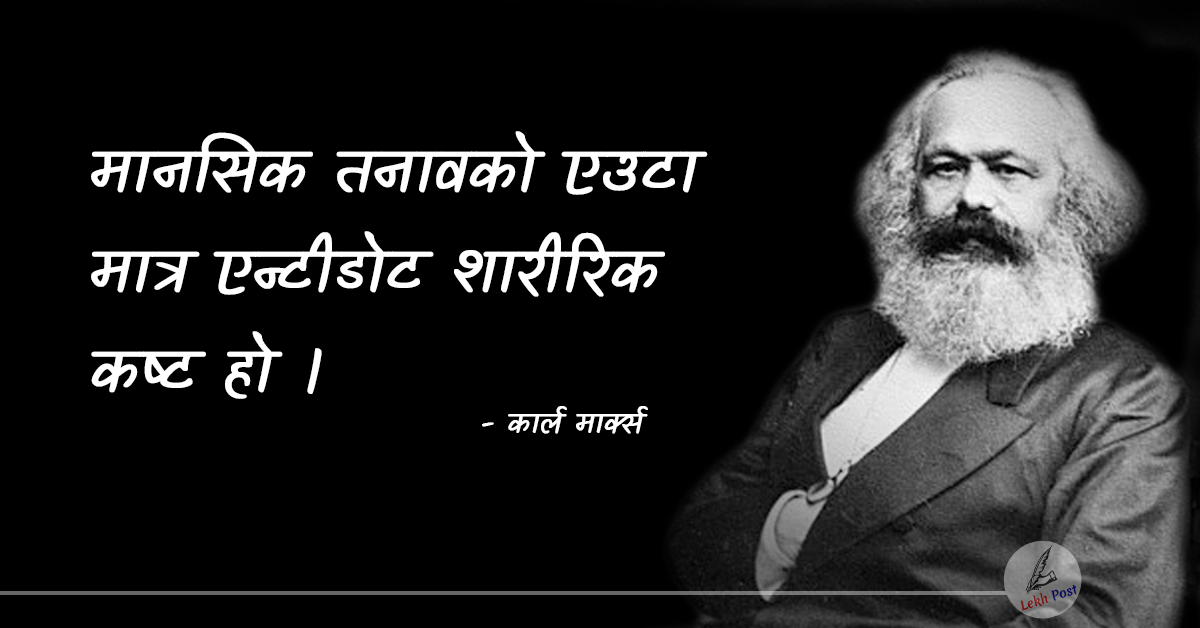
May 5 marks the birthday of the famous philosopher Karl Marx. 2022, Karl Marx’s 204th birthday has been celebrated.
Many agree that Marx’s legacy of revolutionary politics is fraught with difficulties. A powerful ‘social engineering’ in the society is believed to have been inspired by his ideas.
Marx’s theories were linked to imperialism, independence, and mass murder, and he was seen as a divisive figure.
But there is another aspect of Marx, namely, that he was a passionate person. His ideas are considered to have made a significant contribution to the welfare of the world.
On his 202nd birth anniversary, let’s remember 5 Statements of Karl Marx That Brought Change.
1. Children should be taught
Some people may take this as a mere figment of their imagination. But in 1848, while writing the Communist Manifesto, Marx discussed child labor.
According to the International Labor Organization’s 2016 figures, one in 10 children in the world is still a child laborer.
Marx has been instrumental in getting many children to leave school and go to school.
Linda Yu, author of The Great Economist, states: “The Marxist Declaration of 1848 stated that the provision of free education to children in private schools was one of the ten points.
2. Be the master of your own life
Do you work seven days a week? Do you take lunch time at work?
Do you want to retire and retire after a certain age?
If your answer is yes then you can thank Marx.
Mike Savage, a professor at the London School of Economics, says, “In the past, people were told to work long hours. Your time was not yours and you should not have to think about your life.”
Marx wrote about how people would be forced to work in order to survive in capitalist society.
According to him, most of the time people were not paid according to their labor and they were exploited.
Marx wanted human life to be his own, human life to be above all else.
He wanted people to be free and to develop their creative abilities.
Savage says, “Marx says we should live our lives in a way that is not judged by work. A life we own, where we can decide for ourselves how we want to live. This is the way people want to live today.”
3. You should be able to work according to your interests.
People get happiness when they do what they want.
But when things do not go their way, they are often frustrated and frustrated.
These things were said by Marx himself and not by others.
In his 1844 book, Marx linked job satisfaction with human well-being.
He was the first person to say such a thing at that time.
He argued that we spend most of our time at work. So it is important that we enjoy our work.
4. Discrimination must be opposed.
If someone in society is bad, if you feel that someone is being treated unfairly, discriminated against or wronged, then you should oppose it.
You must unite and protest and fight for change.
Due to the organized protests, the direction of many countries has changed.
Make laws against various forms of discrimination.
Louis Nielsen, one of the organizers of the Marxist program in London, said, “Revolution is needed to change society. We protest for the good of society. In this way, the general public has the right to work eight hours a day.”
Marx is interpreted as a philosopher. But Nielsen disagrees.
He says, “What he wrote and did seems like a philosophy. But when you look closely at his life and work, you realize that he was a campaigner. He founded the International Trade Union Confederation. He joined the strike with the poor.”
“How did women get the right to vote? It was not because of the parliament but because women organized and protested. How did the workers get weekly leave? The workers got organized and went on strike.”
5. The media should be monitored.
How do you feel when the government and big business come together?
Would you feel safe if the business establishment provided all your information to the government?
Marx felt this way in the 19th century.
Although there were no social networks at the time, Marx was the first to explain such a connection.
“Marx then studied the nexus between government, banks, trade and the leading agents of colonization,” says Valeria Weigh Vice, a professor at the University of Buenos Aires.
He added, “Marx understood the power of the media. The media was the right medium to influence people’s thinking. Nowadays we talk about false news. But Marx had already said that.”
“Marx was studying the articles that were being published at that time. He came to the conclusion that the crimes committed by the poor are given a big place in the media while the crimes committed by the leaders are suppressed.”

























